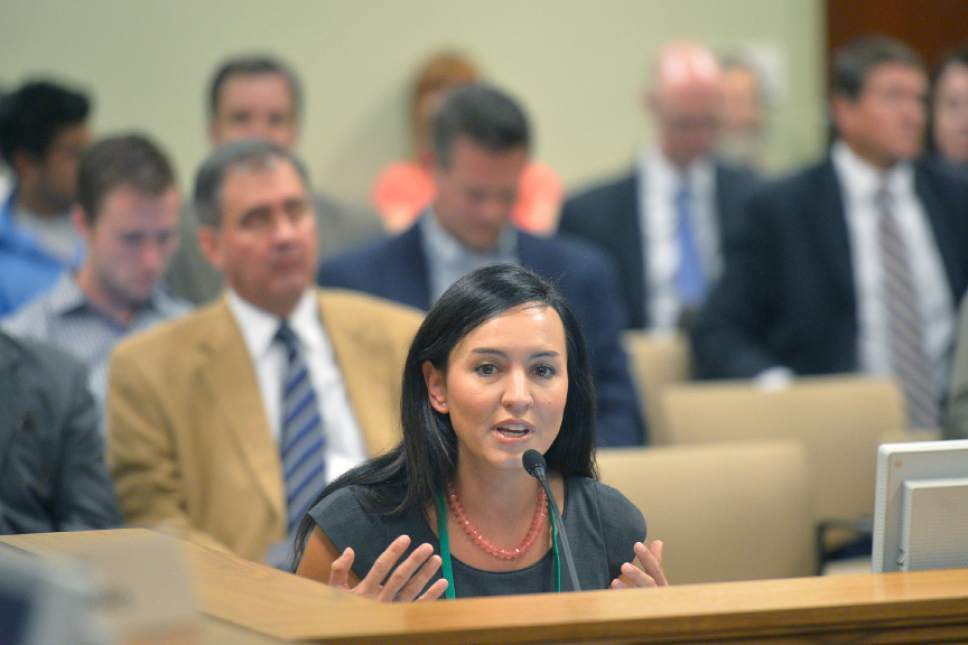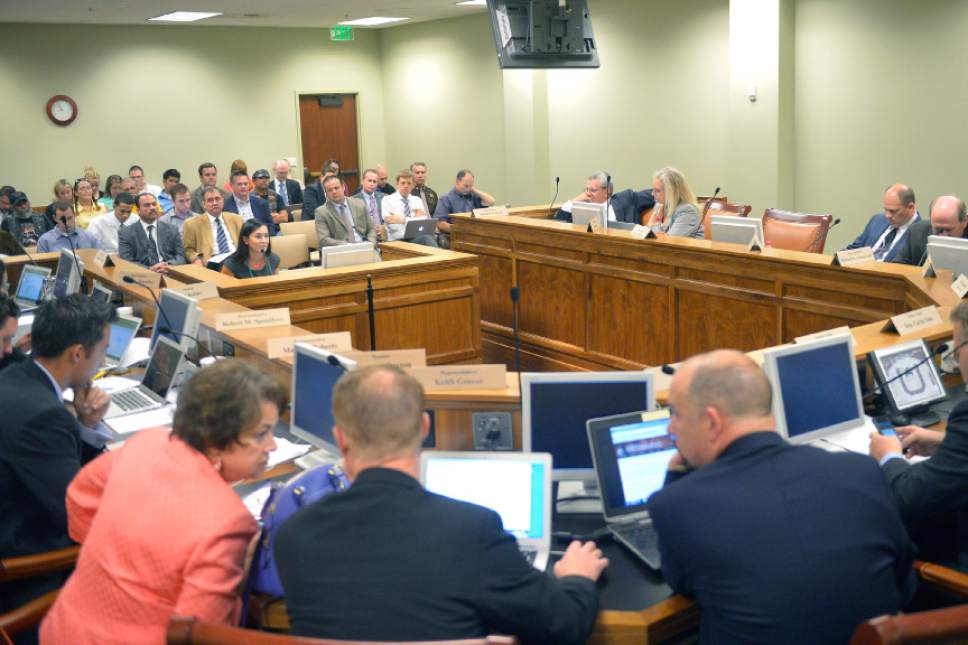This is an archived article that was published on sltrib.com in 2016, and information in the article may be outdated. It is provided only for personal research purposes and may not be reprinted.
A Senate committee unanimously advanced a bill on Thursday that would help address myriad problems with Utah's public-defender system.
SB155, sponsored by Sen. Todd Weiler, R-Woods Cross, would create a commission to oversee indigent-defense services statewide. The bill was made in response to criticism that Utah is not meeting its constitutional requirement to provide legal help to those who can't afford it.
Utah is one of two states in the nation that delegate that responsibility to individual counties, which have had no state oversight to guide their efforts in meeting the Sixth Amendment obligation.
The proposed commission would be responsible for collecting data, reviewing public-defender contracts, creating caseload guidelines and doling out money from a trust fund to counties that need it to provide defense services.
SB155 would request $3 million in one-time funding to finance the commission. It is an amount that Weiler acknowledges isn't enough to fix all of the problems plaguing Utah's current system.
"Is 3 million enough?" he said Thursday. "No. Is 6 million enough? Maybe, but probably not."
Representatives of the American Civil Liberties Union and the Utah Association of Criminal Defense Lawyers (UACDL) echoed this dissatisfaction with the price tag to the Senate Judiciary, Law Enforcement and Criminal Justice Committee.
"The amount that Senator Weiler asked for is significant," said UACDL Executive Director Kent Hart. "But it's not enough."
Marina Lowe, legislative and policy counsel for the ACLU of Utah, said the organization believes the proposed commission will be slow to get off the ground and "insufficient by itself to address the pressing problems with our public-defense system."
"Simply put, regardless of good intentions, this legislation does not commit the state to invest the amount of money, attention and energy needed to solve this crisis," Lowe told the committee.
The proposed legislation is a result of four years of study by a state task force, which included hiring the Sixth Amendment Center to review the way the accused are being represented in Utah.
In October, the center released a report that found many flaws in the system. One of those flaws is in justice courts, where people often connect with the court system for the first time and over half of defendants are never provided legal representation. The report also found that in district courts, where more people are receiving public defenders, "systemic deficiencies" prevent those attorneys from effectively advocating for their clients.
The U.S. Supreme Court ruled in 1963 that defendants facing possible jail time are entitled to counsel, even if they can't afford it.
How each county handles that responsibility differs. In Salt Lake and Utah counties, a nonprofit public defender association provides services, while other counties rely on contracts with public defenders or private attorneys.
Weiler said during Thursday's hearing that there are other big problems with Utah's system, including that public defenders have no incentive to take cases to trial or put more work into their cases because of flat-fee contracts.
The senator also detailed problems with county attorneys advising commissioners on whom to give the public defender contracts to, essentially picking their opponents in court. Weiler said that if a public defender is too aggressive and takes cases to trial, a prosecutor may tell the county administrators to not renew the contract for that attorney.
"This is happening in Utah today," he said. "It is inappropriate, and it's embarrassing to me as a lawyer and a lawmaker."
Sen. Daniel Thatcher, R-West Valley City, commended Weiler for his efforts on the bill, and he said it was an important piece of legislation.
"This is one of the most important things that our state will ever do," he said.
Committee members also questioned Weiler about budgeting and asked whether a lawsuit is imminent against the state by either the ACLU or a criminal defendant unsatisfied with their public defense.
"This, right now, is a lawsuit we'll lose," Weiler responded.
Utah's ACLU has threatened to bring a lawsuit against the state for years unless changes were made, but it is holding off until after this legislative session. On its website last week, the union commented on Weiler's bill and said this effort by the state is "unlikely to preclude litigation."
SB155 now advances to consideration of the full Senate.





